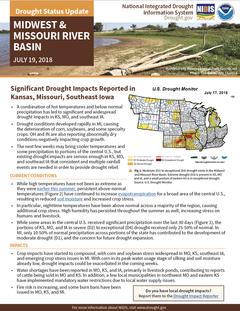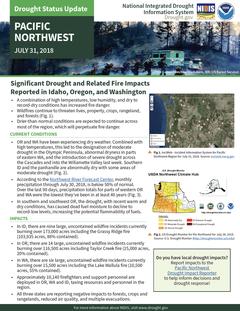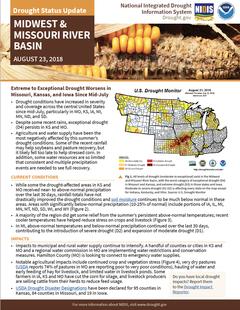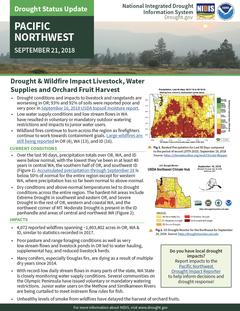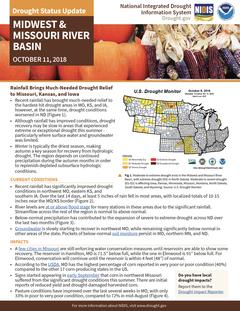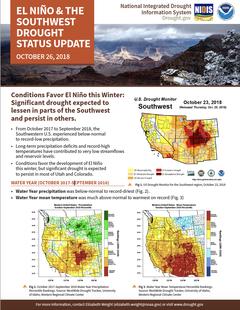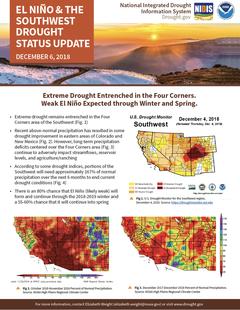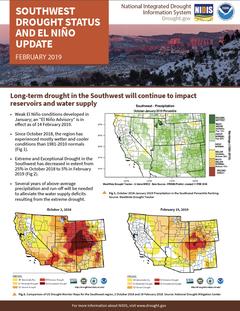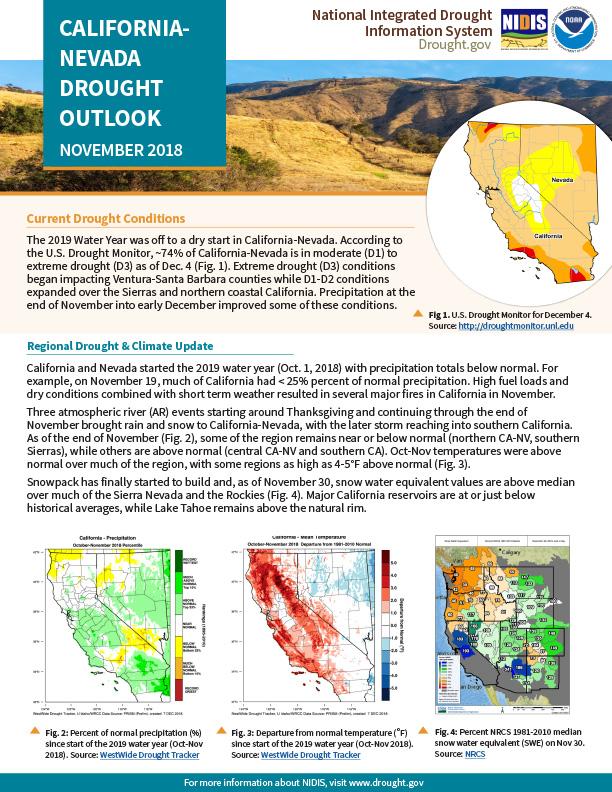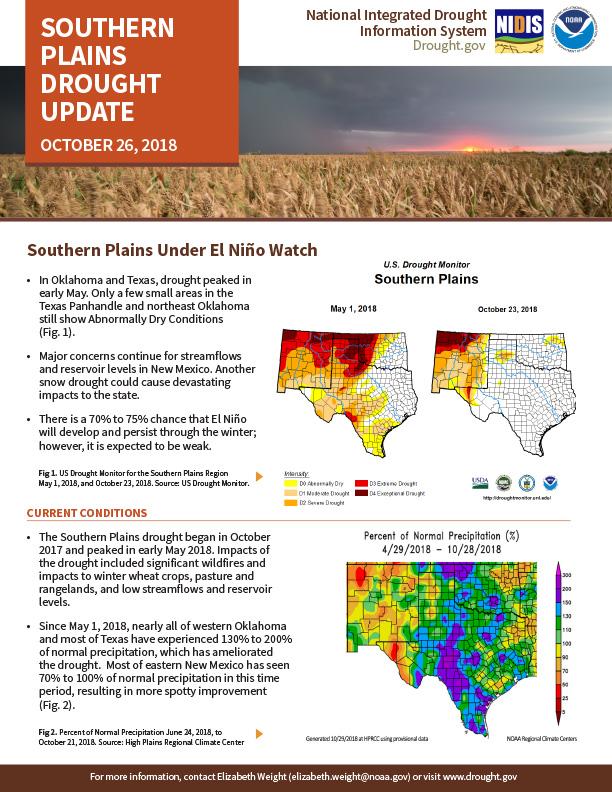Significant Drought Impacts Reported in Kansas, Missouri, Southeast Iowa
Two-page report on July 2018 Pacific Northwest U.S. drought conditions, impacts, and outlook and wildfires.
Extreme to Exceptional Drought Worsens in Missouri, Kansas, and Iowa Since Mid-July
- Drought conditions have increased in severity and coverage across the central United States since mid-July, particularly in MO, KS, IA, MI, MN, ND, and SD.
- Despite some recent rains, exceptional drought(D4) persists in KS and MO.
- Agriculture and water supply have been the most negatively affected by this summer’s drought conditions. Some of the recent rainfall may help soybeans and pasture recovery, but it likely fell too late to help stressed corn.
Two-page report on September 2018 Pacific Northwest U.S. drought conditions, impacts, and outlook and wildfires.
Rainfall Brings Much-Needed Drought Relief to Missouri, Kansas, and Iowa
- Recent rainfall has brought much-needed relief to the hardest-hit drought areas in MO, KS, and IA, however, at the same time, drought conditions worsened in ND.
- Although rainfall has improved conditions, drought recovery may be slow in areas that experienced extreme or exceptional drought this summer - particularly where surface water and groundwater was limited.
- Winter is typically the driest season, making autumn a key season for recovery from hydrologic drought.
Conditions Favor El Niño this Winter: Significant drought expected to lessen in parts of the Southwest and persist in others.
From October 2017 to September 2018, the Southwestern U.S. experienced below-normal to record-low precipitation.
Long-term precipitation deficits and record-high temperatures have contributed to very low streamflows and reservoir levels.
Conditions favor the development of El Niño this winter, but significant drought is expected to persist in most of Utah and Colorado.
WATER YEAR (OCTOBER 2017-SEPTEMBER 2018)
Extreme Drought Entrenched in the Four Corners. Weak El Niño Expected through Winter and Spring.
- Extreme drought remains entrenched in the Four Corners area of the Southwest.
- Recent above-normal precipitation has resulted in some drought improvement in eastern areas of Colorado and New Mexico.
Long-term drought in the Southwest will continue to impact reservoirs and water supply
- Weak El Niño conditions developed in January; an “El Niño Advisory” is in effect as of 14 February 2019.
- Since October 2018, the region has experienced mostly wetter and cooler conditions than 1981-2010 normals (Fig 1).
- Extreme and Exceptional Drought in the Southwest has decreased in extent from 25% in October 2018 to 5% in February 2019 (Fig 2).
- Several years of above-average precipitation and run-off will be needed to alleviate the water supply deficits r
Current Drought Conditions
The 2019 Water Year was off to a dry start in California-Nevada. According to the U.S. Drought Monitor, ~74% of California-Nevada is in moderate (D1) to extreme drought (D3) as of December 4, 2018. Extreme drought (D3) conditions began impacting Ventura-Santa Barbara counties while D1-D2 conditions expanded over the Sierras and northern coastal California. Precipitation at the end of November into early December improved some of these conditions.
Southern Plains Under El Niño Watch
- In Oklahoma and Texas, drought peaked in early May. Only a few small areas in the Texas Panhandle and northeast Oklahoma still show Abnormally Dry Conditions.
- Major concerns continue for streamflows and reservoir levels in New Mexico. Another snow drought could cause devastating impacts to the state.
- There is a 70% to 75% chance that El Niño will develop and persist through the winter; however, it is expected to be weak.
CURRENT CONDITIONS


